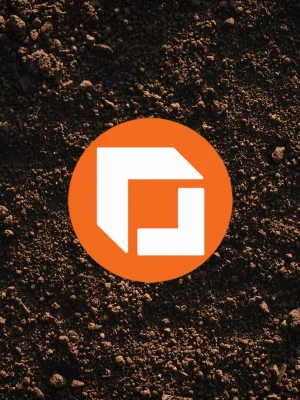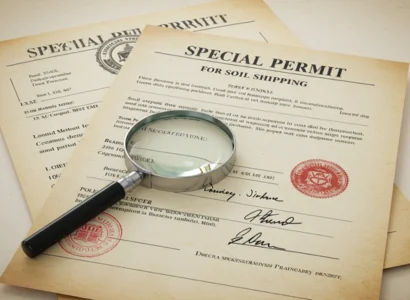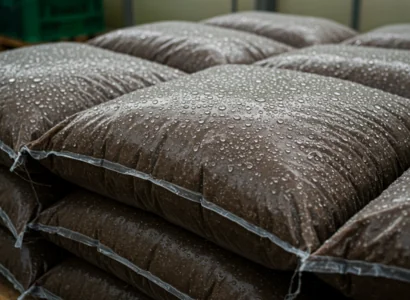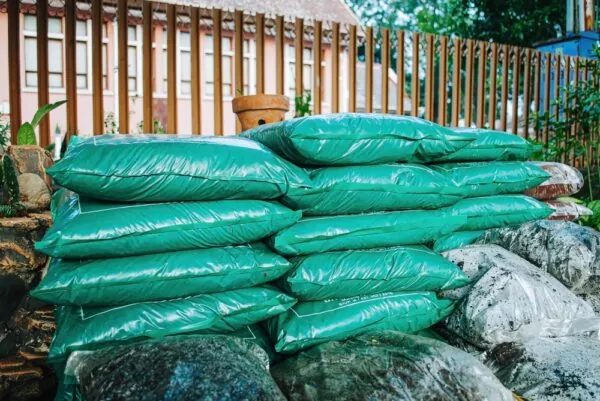
Shipping Soil
Reliable Soil Shipping Services Across the USA
At FreightCenter, we make shipping soil simple, affordable, and hassle-free. Whether you're sourcing high-quality garden soil, topsoil, or specialty blends, we ensure your shipment arrives safely and on time—no matter the size or destination.
Reliable Soil Shipping with FreightCenter
Transporting soil—whether it’s a small sample for research or a bulk shipment for construction, landscaping, or agriculture—requires careful planning to ensure it arrives uncontaminated, intact, and on time.
At FreightCenter, we specialize in soil shipping solutions that prioritize safety and efficiency. From selecting the right carrier to handling the logistics, our team is with you every step of the way. We make it easy to navigate regulations, packaging, and transit requirements so your soil shipment arrives exactly as intended.
No matter the size or purpose of your shipment, FreightCenter ensures a smooth and reliable soil shipping experience. Shipping soil? We’ve got it handled.
Thousands of businesses trust FreightCenter to move their freight faster, smarter, and cheaper! From unbeatable rates to top-notch service, our customers are raving about their shipping success.
See why they keep coming back!
Award-Winning Service, Trusted by Shippers Everywhere!
- 2021, 2017 & 2016 Food Logistics’ Top Green Providers
- 2021 & 2018 Supply & Demand Chain Executives’ Pros to Know: Matthew Brosious
- 2020 & 2019 Top Food Logistics’ 3PL & Cold Storage Provider Award
- 2020 & 2019 Business Observer’s Top 500 Companies on the Gulf Coast
- 2020 & 2017 SmartWay® Transport Partner
- 2020 & 2017 Food Logistics’ Champions: Rock Stars of the Supply Chain
- 2020 Best of Palm Harbor Awards for Local Businesses
- 2017 Green Supply Chain Award from Supply & Demand Chain Executive
- 2017 Tampa Bay Business Journal Heroes at Work
- 2016, 2015, & 2012 Food Logistics Top 100 Software and Technology Providers
- 2013 Tampa Bay Business 100 by Tampa Bay Business Journal
- 2013 Top 100 Great Supply Chain Partners by SupplyChainBrain
- 2012 TIA Samaritan Award Honorable Mention
- 2012, 2011 & 2010 TBBJ Fast 50 Recipient
- 2013, 2011, & 2010 Diversity Business Top Businesses

Why Choose FreightCenter For Soil Shipping Services?
When it comes to shipping soil, FreightCenter stands out as an award-winning logistics company and proud American veteran-owned business. We combine a legacy of excellence with competitive pricing and unmatched service to deliver reliable soil shipping solutions across the USA.
Over the years and miles, we’ve built a dedicated network of trusted industry partners, ensuring your soil shipments meet deadlines and arrive safely. Whether you’re transporting garden soil, topsoil, or specialty blends, FreightCenter handles every detail—from pickup to delivery.
Our mission is to meet and exceed customer expectations at every stage of the shipping process. Exceptional customer service is our hallmark, creating relationships built on trust and reliability. When you choose FreightCenter to handle your soil shipment, you can count on us to get the job done right.
Soil shipping made simple. FreightCenter has it handled.
Preparing Your Soil for Shipping with FreightCenter
At FreightCenter, we understand the importance of properly preparing and packaging soil to ensure it arrives safely and intact. Whether you’re shipping soil for landscaping, agriculture, or scientific purposes, taking the right steps before shipping can prevent delays, damage, and additional costs.
How to Prepare Soil for Shipping
To ensure a smooth shipping process, start by drying the soil. Moist soil can lead to mold, bacteria growth, and heavier shipments—resulting in higher shipping costs. By ensuring the soil is dry, you’re protecting the integrity of your shipment and helping it move efficiently through transit.
Next, remove any debris such as rocks, plant matter, or other foreign materials. Clean soil reduces the risk of damage to packaging and helps avoid regulatory issues during transportation.
If you’re shipping soil for agricultural or scientific purposes, testing for pathogens is an essential step. Some shipments, especially those crossing state lines or international borders, require documentation to verify the soil is free of harmful organisms. A government-issued phytosanitary certificate is often necessary to meet these regulations.
Checking legal requirements is another critical step. Soil can carry pests and diseases, so ensuring compliance with state and international shipping regulations helps avoid delays and penalties. If you need assistance understanding the regulations for your shipment, FreightCenter is here to guide you through the process.

How to Package Soil for Shipping
Once your soil is prepared, the next step is proper packaging to ensure it arrives in the best condition. FreightCenter can assist in selecting the right packaging solutions to fit your shipment’s needs.
-
For Small Sample Collections:
Use plastic containers, jars, or vials with secure lids. This ensures the soil stays contained and protected during transit. Proper sealing prevents leaks, and labeling each sample correctly helps streamline delivery. -
For Larger Shipments:
Heavy-duty, resealable, or vacuum-sealed plastic bags are the best choice. These materials help prevent spills and contamination while minimizing the bulk and weight of your shipment—saving you on shipping costs. For extra security, consider double-bagging dry soil. Smaller shipments can fit into 1- or 2-gallon bags, while larger quantities will need appropriately sized options.Placing these bags in corrugated cardboard boxes offers added protection, especially during long-haul shipments.
-
For Bulk Shipments:
Large quantities of soil can be packaged in heavy-duty plastic liners or woven plastic sacks. These may be placed on pallets or prepared for full truckload shipments. FreightCenter can help you arrange the most efficient transportation method for bulk soil, ensuring it arrives safely and on schedule.
Additional Packaging Tips:
- Protection: Add padding around bags or containers to prevent shifting. Bubble wrap, newspaper, or packing peanuts are great options.
- Sealing: Use resealable bags or secure containers with zip ties, heat sealing, or tape to prevent leaks.
- Labeling: If necessary, mark packages with “Fragile” or “Handle with Care” to ensure careful handling during transit.
At FreightCenter, our team of shipping experts specializes in shipping soil safely and efficiently, no matter the scale of your project. We understand the unique challenges of transporting bulk soil, from weight considerations to proper packaging and transit regulations. Our finely tailored freight solutions ensure that whether you’re shipping garden soil, topsoil, or specialty blends, your delivery arrives on time and in excellent condition.
FreightCenter simplifies shipping soil by connecting customers with top carriers, ensuring secure packaging, and offering cost-effective freight solutions. From small garden loads to bulk commercial shipments, we provide reliable delivery, flexible scheduling, and expert support to make soil transport hassle-free.
Got a big soil shipment? FreightCenter’s full truckload (FTL) shipping is the fast, efficient solution for moving large quantities of soil. We’ll match you with trusted carriers, handle the logistics, and ensure your soil arrives safely and on time.
Shipping unique or complex soil loads? FreightCenter’s specialized transportation services are designed for precision and care. From heavy equipment to temperature control, we handle every detail to ensure your soil arrives safely and securely.
Keep your soil shipment fresh and protected with FreightCenter’s temperature-controlled shipping! Ideal for sensitive or specialty soils, we ensure the perfect climate from pickup to delivery. Our expert team handles every detail, so your soil arrives in top condition, no matter the destination.


Challenges Shippers Face When Shipping Soil
-
Regulatory Compliance:
Soil shipments often require adherence to state, federal, or international regulations to prevent the spread of pests or diseases. This can involve securing permits or phytosanitary certificates. -
Proper Packaging:
Ensuring soil is properly packaged to prevent contamination, spills, or moisture retention is critical. Incorrect packaging can lead to damaged shipments or additional costs. -
Shipping Costs:
Soil can be heavy and bulky, leading to higher shipping costs, especially for bulk or long-distance shipments. -
Transit Time and Handling:
Delays or rough handling can impact the quality of soil, especially if it’s sensitive or temperature-dependent. -
Choosing the Right Carrier:
Not all carriers are equipped to handle specialized soil shipments, particularly when it involves bulk quantities, temperature controls, or specific delivery requirements.
How FreightCenter Helps
-
Expert Guidance on Regulations:
FreightCenter assists shippers in understanding and complying with legal requirements for soil shipping, including guidance on necessary documentation like phytosanitary certificates. -
Packaging Support:
Our team offers advice on the best packaging methods to ensure soil remains intact and uncontaminated, helping you avoid issues during transit. -
Cost-Effective Solutions:
FreightCenter connects shippers with the best rates through our network of trusted carriers, offering options like LTL, FTL, and specialized transport to fit any budget. -
Carrier Selection and Logistics Management:
We match shipments with carriers experienced in handling soil and manage the logistics from pickup to delivery—ensuring efficient, reliable service. -
Specialized Services:
For shipments requiring temperature control, bulk transport, or specific handling, FreightCenter provides specialized solutions tailored to your needs. -
Real-Time Support:
FreightCenter’s team is available to answer questions, provide updates, and assist with any challenges that arise throughout the shipping process.
Shipping Soil FAQ

Q. Can FreightCenter ship soil across the United States?
Yes! FreightCenter offers reliable soil shipping services across the entire United States. Whether you’re shipping small soil samples or bulk quantities, we ensure your shipment is handled with care and arrives safely.
Q. Does FreightCenter offer international soil shipping?
Yes, FreightCenter can assist with international soil shipping. We help ensure your shipment meets all international regulations, including necessary documentation like phytosanitary certificates.
Q. What types of soil can FreightCenter ship?
FreightCenter can ship all types of soil, including garden soil, topsoil, specialty blends, and scientific soil samples. We provide customized solutions based on the soil type and shipping requirements.
Q. How should I package soil for shipping?
Soil should be packaged in heavy-duty, resealable, or vacuum-sealed plastic bags. For small samples, containers or jars with secure lids work best. Bulk soil should be packed in liners or sacks and secured on pallets. FreightCenter can provide guidance on the best packaging methods.
Q. Does soil need to be dry before shipping?
Yes, it’s recommended to dry soil before shipping to reduce weight, avoid mold growth, and prevent leakage. Dry soil is also easier to package securely and may reduce shipping costs.
Q. What regulations must I follow when shipping soil?
Soil shipments must comply with local, state, and federal regulations to prevent the spread of pests and diseases. A phytosanitary certificate is often required, especially for interstate and international shipping. FreightCenter can guide you through these requirements.
Q. Does FreightCenter offer temperature-controlled soil shipping?
Yes! FreightCenter provides temperature-controlled soil shipping for sensitive soil types that require climate regulation to maintain quality during transit.
Q. How much does it cost to ship soil with FreightCenter?
Shipping costs depend on the soil’s weight, volume, packaging, destination, and shipping method (LTL, FTL, or specialized services). FreightCenter offers competitive rates and helps you find the most cost-effective option.
Q. Can I ship soil samples with FreightCenter?
Absolutely! FreightCenter can handle small soil sample shipments. We recommend using sealed containers or jars to ensure sample integrity and prevent leakage.
Q. What is the best shipping method for bulk soil shipments?
Full truckload (FTL) shipping is often the best option for bulk soil shipments. FreightCenter can arrange FTL services, ensuring your soil is transported securely and efficiently.
Q. How can FreightCenter help with soil shipping regulations?
FreightCenter provides expert guidance to help you understand and comply with soil shipping regulations. We assist with paperwork, certifications, and packaging requirements to avoid delays and penalties.
Q. What happens if my soil shipment is delayed?
FreightCenter monitors shipments and provides real-time updates. If delays occur, our team will proactively communicate and work to resolve any issues quickly.
Q. Does FreightCenter offer specialized transportation for soil?
Yes, FreightCenter offers specialized soil shipping services for unique or complex requirements, including heavy equipment handling, temperature control, and bulk transport solutions.
Q. How can I get a soil shipping quote from FreightCenter?
Getting a quote is easy! Visit FreightCenter.com and use our online quote tool, or contact our team directly for customized soil shipping solutions and pricing.
Q. Why choose FreightCenter for soil shipping services
FreightCenter is an award-winning, veteran-owned logistics company with years of experience in soil shipping. We offer competitive rates, expert guidance, and unmatched service to ensure your soil shipment arrives safely and on time.
Three Things You Didn't Know About Soil Shipping

Special Permits Are Often Required
Did you know that shipping soil—especially across state lines or internationally—often requires a phytosanitary certificate to confirm it’s free of pests and diseases? Soil can carry harmful organisms that disrupt ecosystems, and regulations are in place to prevent contamination. FreightCenter simplifies this process by guiding you through regulatory requirements, helping you secure the necessary documentation for hassle-free shipping.

Moisture Can Drive Up Costs
Wet soil isn’t just messy—it’s heavy. Moist soil can increase shipping costs and encourage mold or bacterial growth during transit. FreightCenter helps you avoid these issues by offering expert advice on drying and properly packaging soil to reduce weight and shipping expenses.

Proper Packaging Prevents Contamination
Soil must be packaged in heavy-duty, resealable, or vacuum-sealed bags to prevent spills and contamination. Double-bagging and using protective packaging, like corrugated boxes or pallets, adds an extra layer of security. FreightCenter ensures you’re equipped with the right packaging guidance and connects you with carriers experienced in handling soil shipments.

